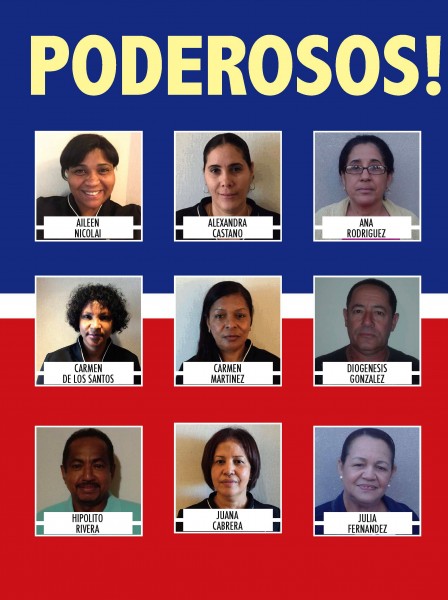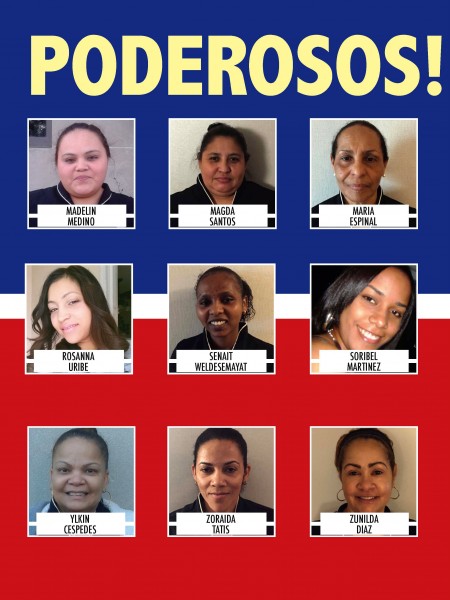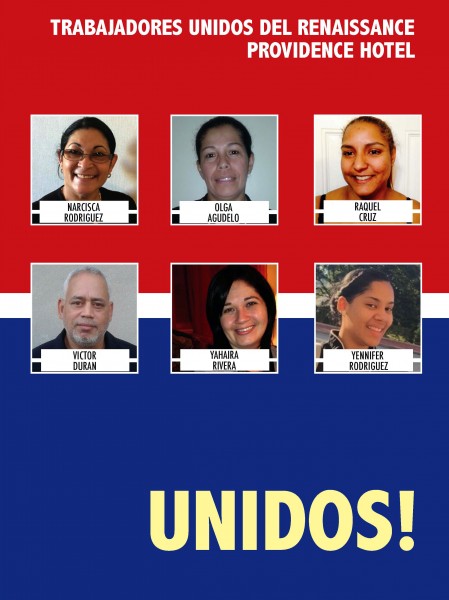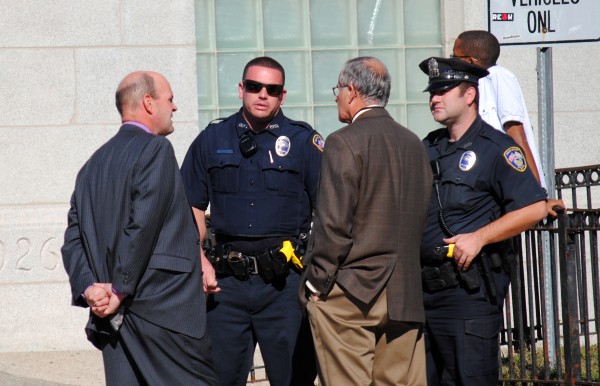 The twenty people, parents, activists, concerned citizens and students, gathered in the meeting room at the Pawtucket Public Library Tuesday night agreed that the police officer violently arresting two brothers at Tolman High School last week used, “too much force.”
The twenty people, parents, activists, concerned citizens and students, gathered in the meeting room at the Pawtucket Public Library Tuesday night agreed that the police officer violently arresting two brothers at Tolman High School last week used, “too much force.”
“I’ve never seen any 14, 15, or 17 year old handled in that way,” said Alexandra, the organizer of the meeting. She opened the meeting by writing the words, “WHAT NOW?!” on the wipe board. It was the question of the evening.
- Violence, protest at Tolman leads to dialogue, opportunity for students
- Tolman students report disturbing police behavior
- Nonviolence street workers keep the peace at Tolman
Alexandra arranged the meeting and lead the discussion along with Marco McWilliams, who runs the Black Studies program at DARE (Direct Action for Rights and Equality).
The ensuing discussion was challenging and illuminating. Some of those in attendance were students at Shea, another public high school in Pawtucket. “Having a police officer is necessary,” one student believed, “because what if a student brings a gun to school and intends to use it?”
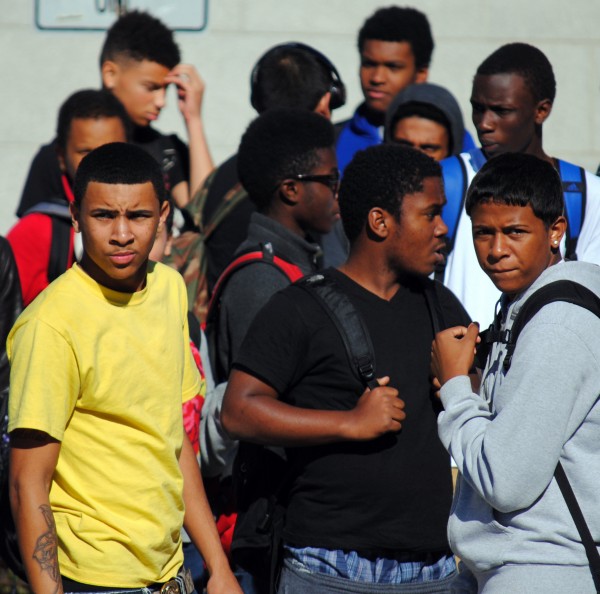 An activist countered that, “safety is different from policing” and then worked to disentangle the two ideas. “Developing forms of keeping each other safe is important,” he said. “We need to ask ourselves ‘Why are our schools unsafe?’
An activist countered that, “safety is different from policing” and then worked to disentangle the two ideas. “Developing forms of keeping each other safe is important,” he said. “We need to ask ourselves ‘Why are our schools unsafe?’
“Having kids packed into an underfunded school leads to tensions that leads to beefs that lead to escalation,” continued the activist.
This struck me as true. When I first went to Tolman after the incidents took place, I encountered students who were plainly nervous about the violence that that had occurred. They felt that the violence would continue, and continue to escalate. According to these students, the tensions surrounding the arrests, subsequent protests and further arrests had lead to tensions growing between various gangs in Pawtucket and nearby cities. The police, always to be avoided, were seen as extra nervous and vigilant.
The expectation of further violence was, “in the air” as one 15 year old put it to me.
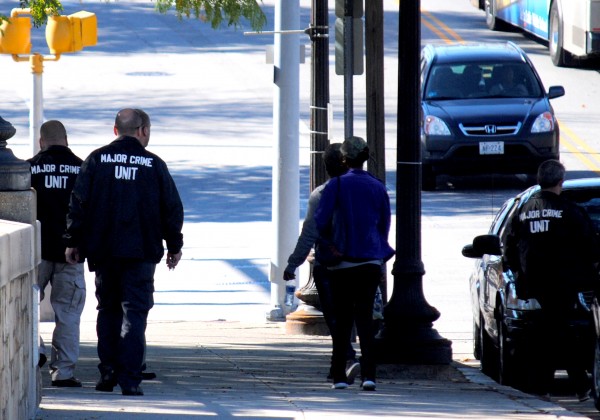 Back in the meeting room at the Pawtucket Library, someone suggested educating high school kids about their rights and teaching the youth to prevent the kinds of situations where they might be targeted for arrest by police officers. An objection to the second part of this idea was immediately voiced: Framing this as “how kids should behave puts the blame [for police violence] on the kids.”
Back in the meeting room at the Pawtucket Library, someone suggested educating high school kids about their rights and teaching the youth to prevent the kinds of situations where they might be targeted for arrest by police officers. An objection to the second part of this idea was immediately voiced: Framing this as “how kids should behave puts the blame [for police violence] on the kids.”
“Where I’m from we’re harassed by police, all the time, for no reason,” said another participant, “At some point your rights just don’t matter.”
When the topic of the violence at Tolman is brought up by students at Shea, “the teachers say, ‘we don’t know what happened before the video started,’” said a student, “and that means they think the kids deserve it.”
The teachers would have a different point of view if they lived in Pawtucket and sent their kids to public schools, said the student. Like the police in Pawtucket, most teachers are white, and commute to work from nearby or even distant cities. “They don’t come from Pawtucket, most of them, and they don’t care about their impact on the city,” said a student about the teachers and police. There is an attitude among public sector workers that the problems of Pawtucket can be left in Pawtucket.
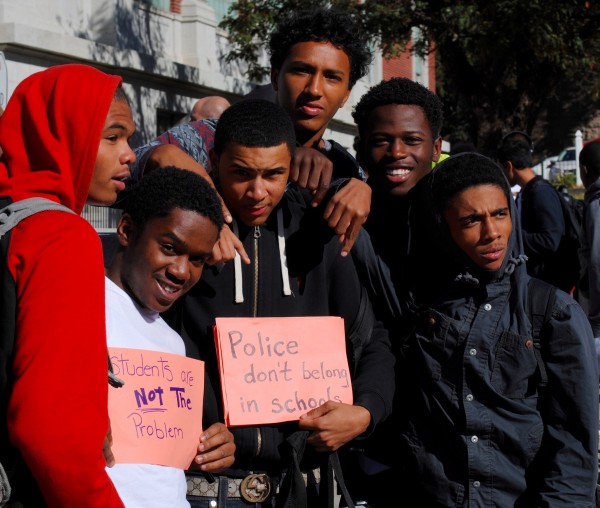 “I don’t know how to defend myself and my children as a Hispanic woman,” said a mother. She has come to this meeting because she can imagine her children being arrested by police officers as shown in the video, and she worries. Like everyone in the room, she knows the statistics about students of color being disproportionately suspended from school. She is aware of the school to prison pipeline, and she wants to keep her children out of it.
“I don’t know how to defend myself and my children as a Hispanic woman,” said a mother. She has come to this meeting because she can imagine her children being arrested by police officers as shown in the video, and she worries. Like everyone in the room, she knows the statistics about students of color being disproportionately suspended from school. She is aware of the school to prison pipeline, and she wants to keep her children out of it.
It is suggested that the presence of police officers in schools causes students to be pushed into the court system, sometimes directly, like the two brothers arrested on video. Policing schools makes schools unwelcoming to students of color. Schools can take on a prison-like atmosphere.
“The reality of being black in America is to fear the police.”
“I’m a black guy with two degrees and I don’t feel safe with the police,” said a college professor attending the meeting, “and that’s because of my lifelong interactions with police.”
The meeting closed with some ideas about goals. Goals include bringing elders into schools, retired grandmothers for instance, to “change the energy of a school.” Another is for schools to be community run.
But the most important goal is to grow the group and begin to effect real change. The tragic events at Tolman have presented opportunities that people are eager to seize.

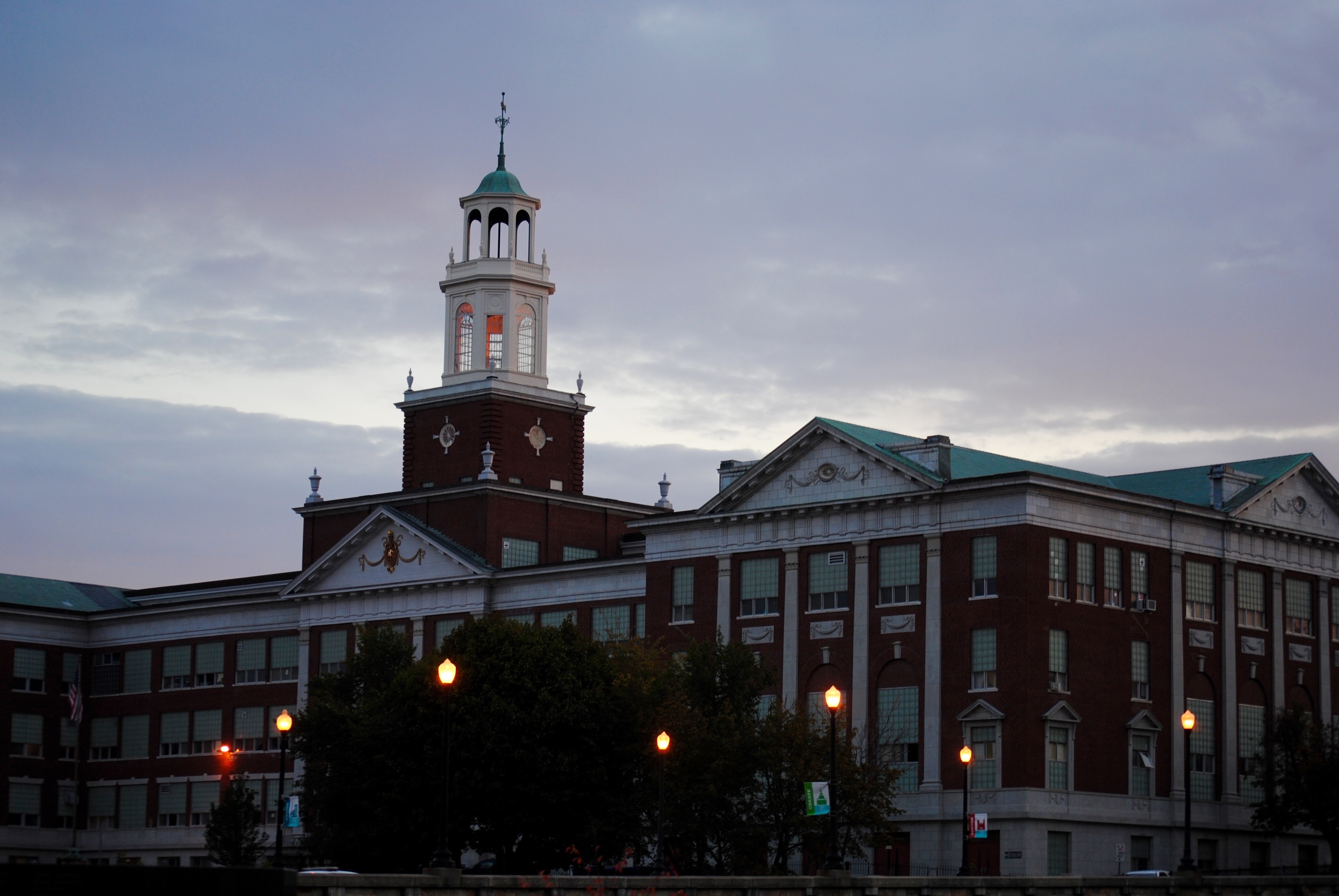



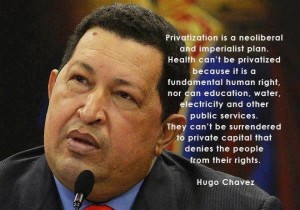

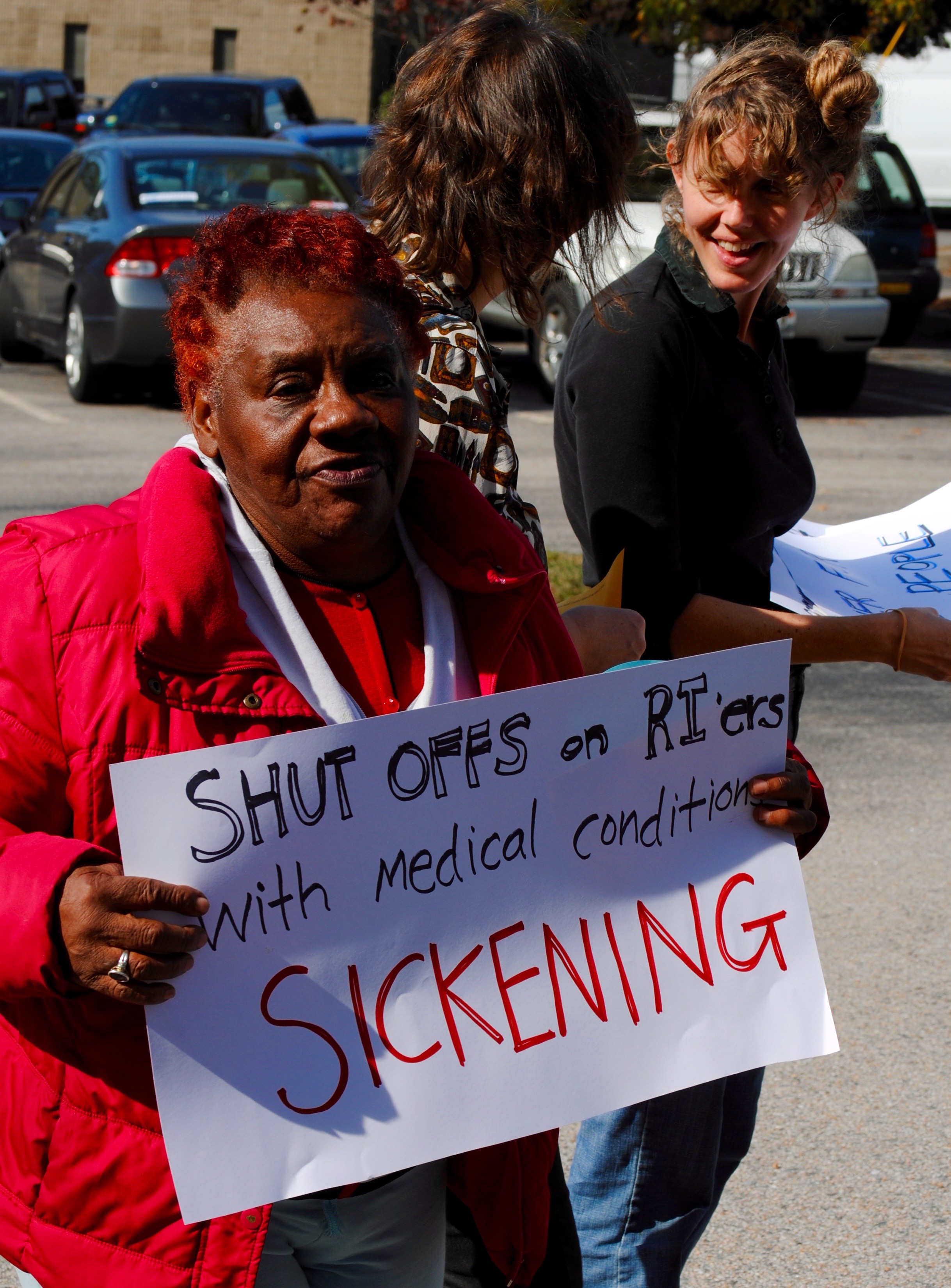
 More than 30 people entered the RI Public Utilities Commission (PUC) yesterday to demand an end to the epidemic of unfair utility shut-offs. Many in attendance have been victims of these shut-offs, even though they complied with the law and produced letters from their doctors indicating that their health would be seriously compromised by shut-offs. The protest was lead by the
More than 30 people entered the RI Public Utilities Commission (PUC) yesterday to demand an end to the epidemic of unfair utility shut-offs. Many in attendance have been victims of these shut-offs, even though they complied with the law and produced letters from their doctors indicating that their health would be seriously compromised by shut-offs. The protest was lead by the 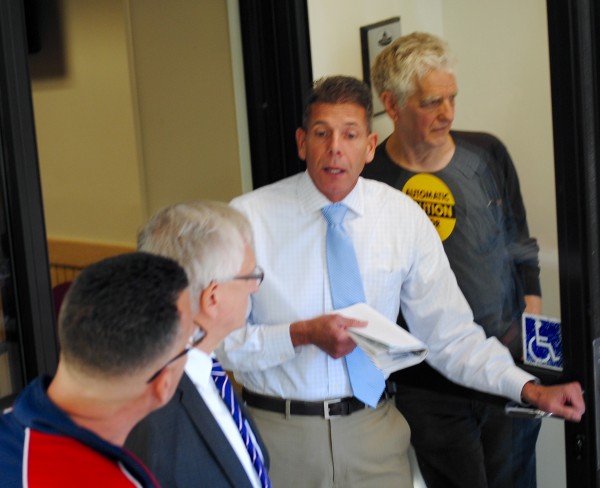 According to a George Wiley Center press release, “Every year tens of thousands of households in Rhode Island experience the stress of utility service termination due to unaffordable bills. It is shocking that in many of these homes live people struggling with medical conditions. This injustice is due to a loophole that allows the state’s Division of Public Utilities to grant National Grid permission to shut off households, even when their medical status is on file.”
According to a George Wiley Center press release, “Every year tens of thousands of households in Rhode Island experience the stress of utility service termination due to unaffordable bills. It is shocking that in many of these homes live people struggling with medical conditions. This injustice is due to a loophole that allows the state’s Division of Public Utilities to grant National Grid permission to shut off households, even when their medical status is on file.”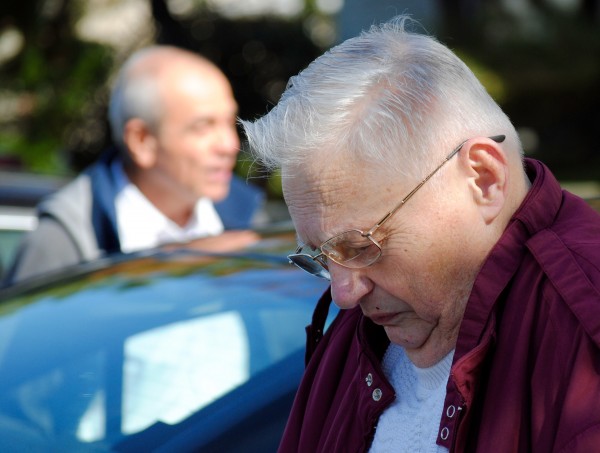
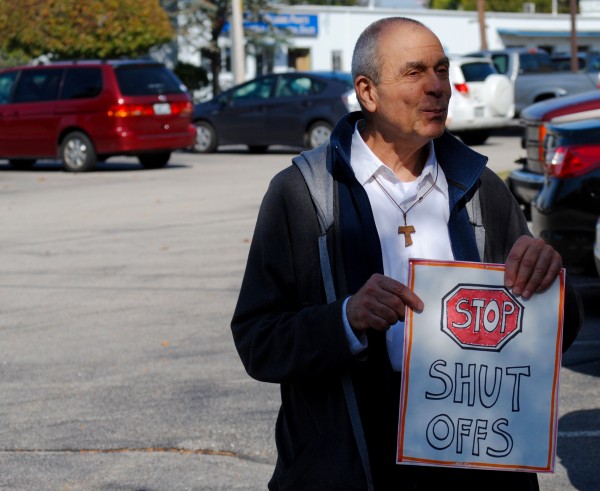
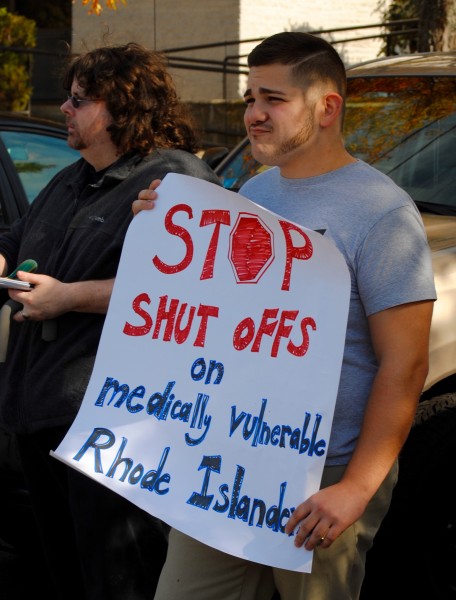
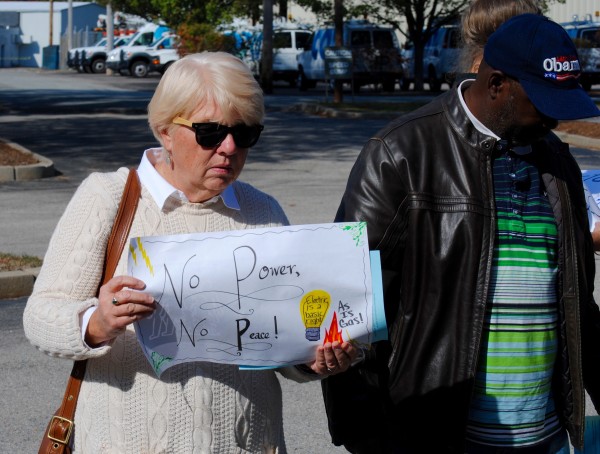
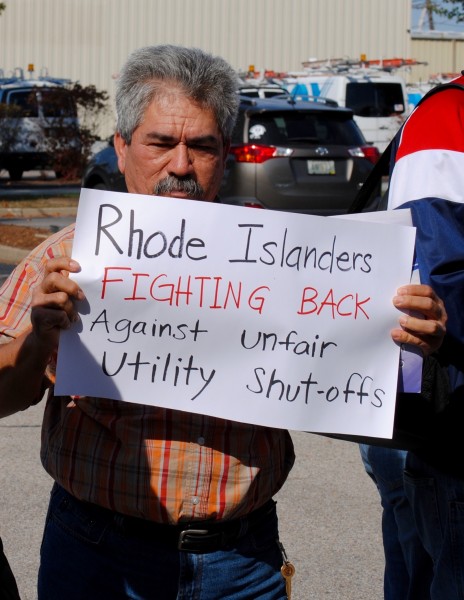

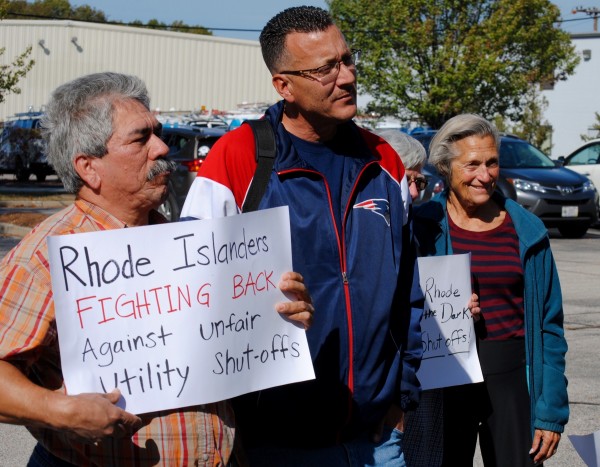


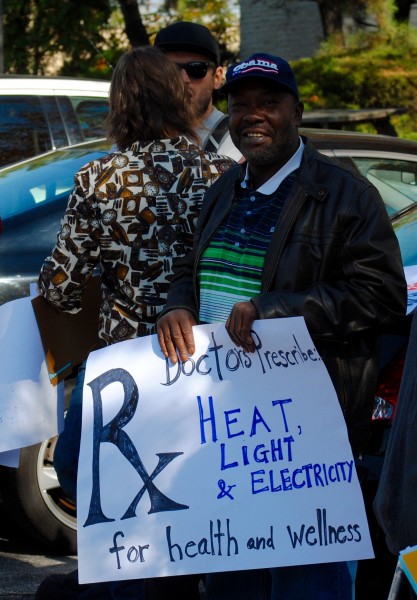
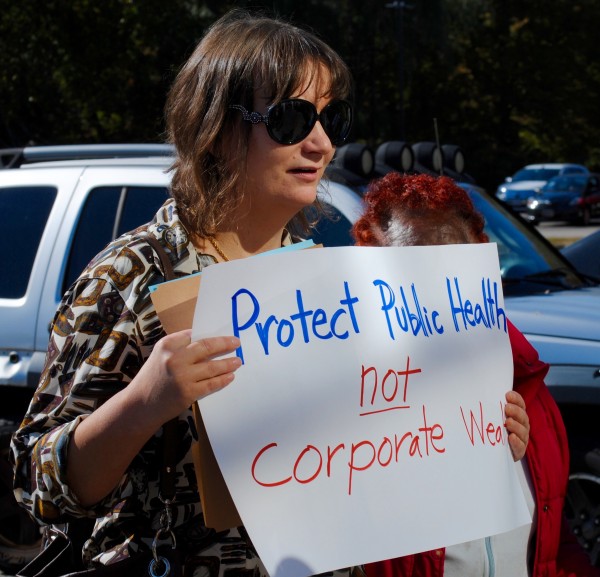
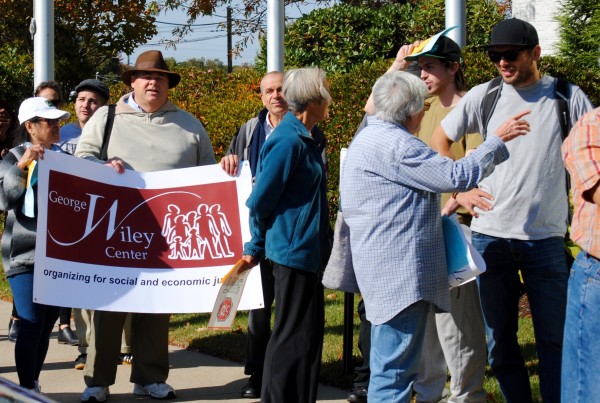
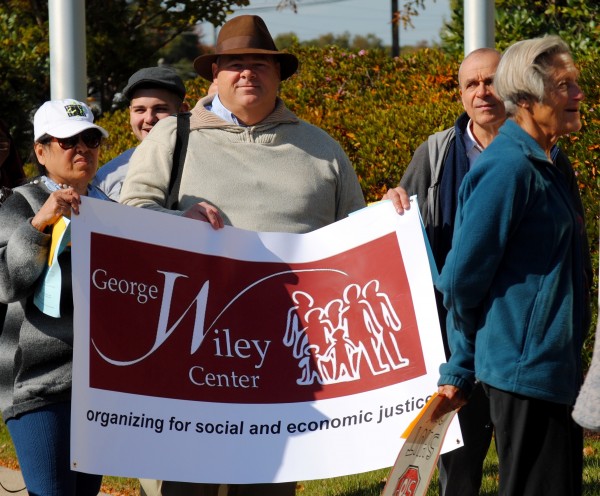
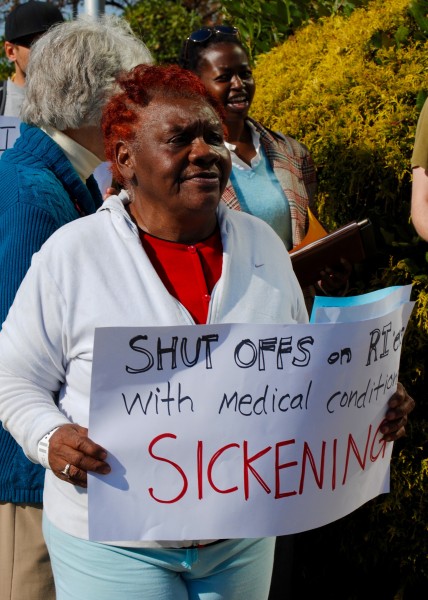
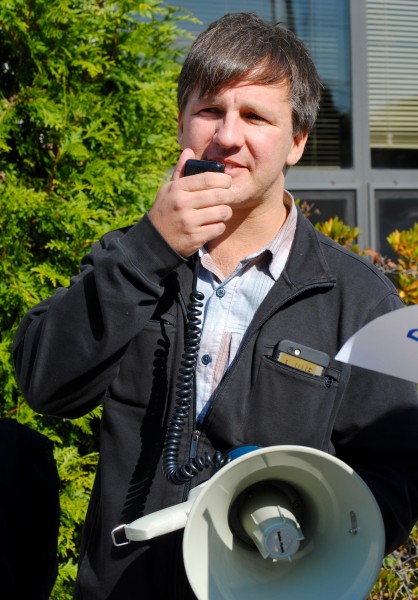
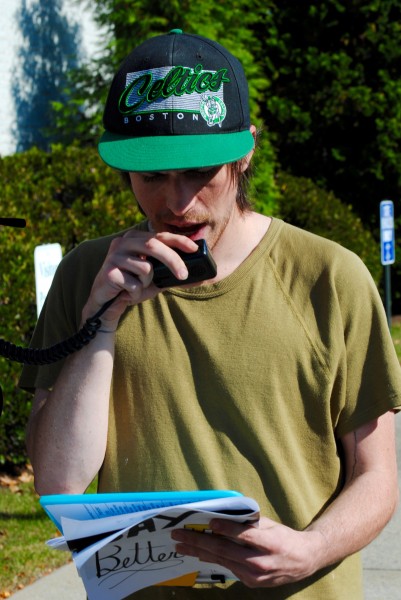
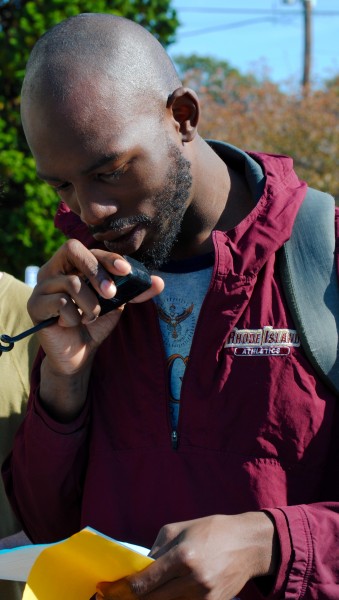
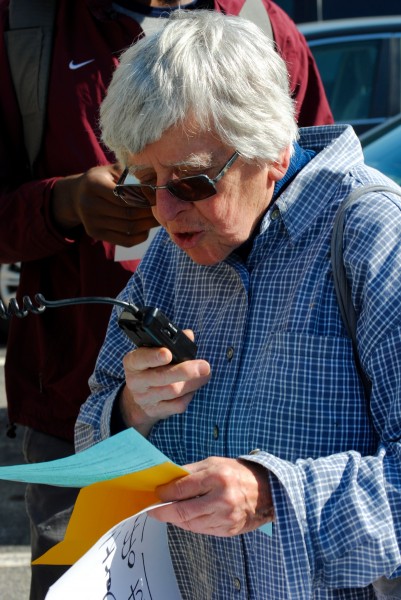
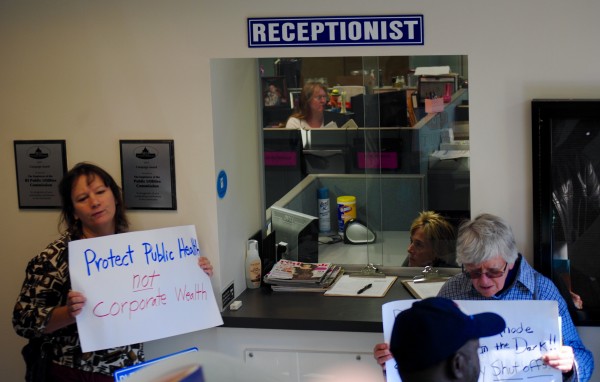
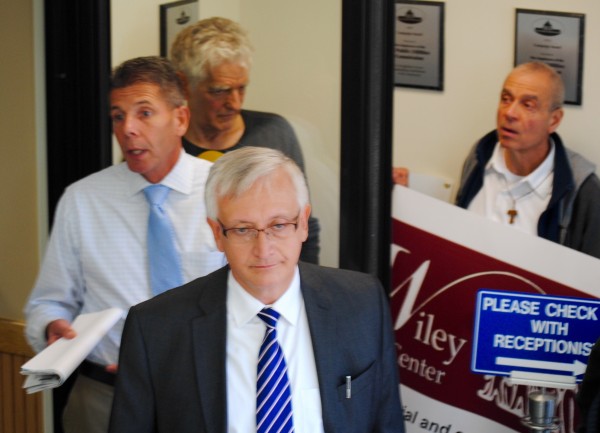
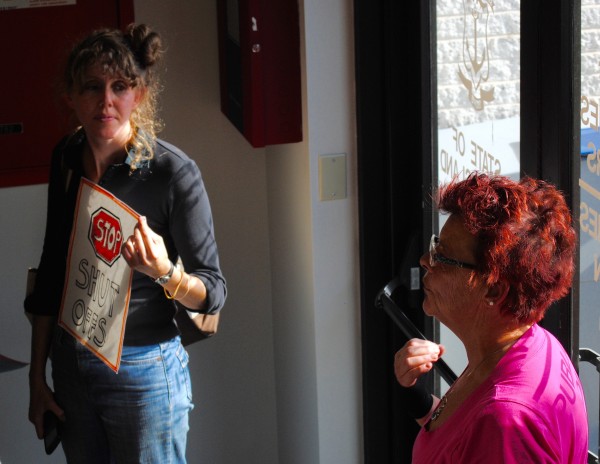
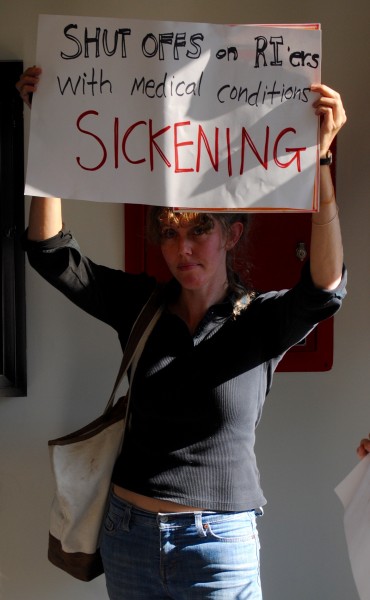
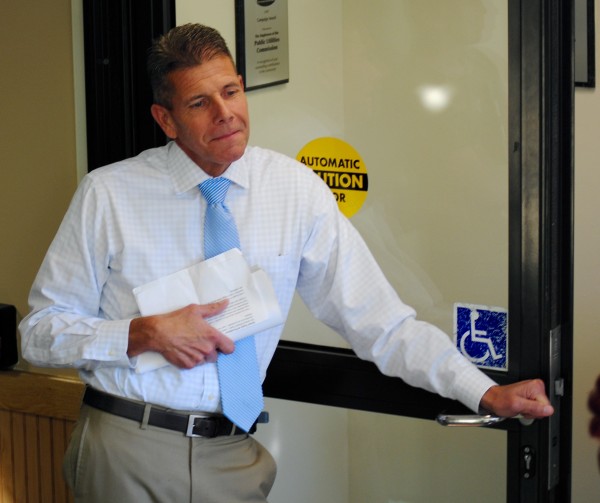
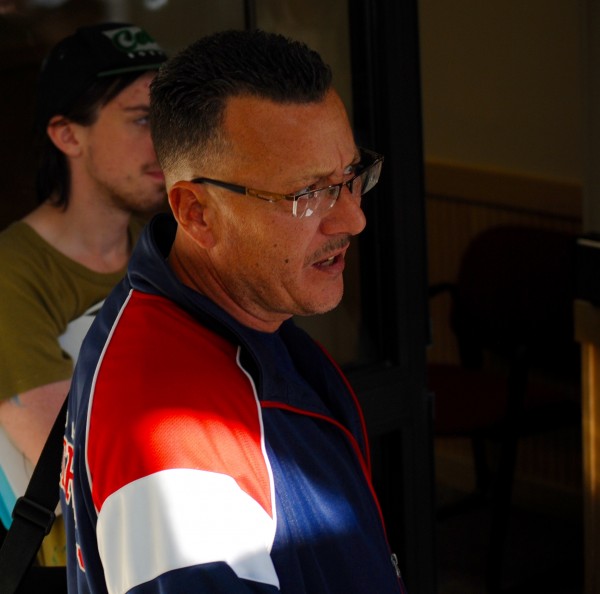

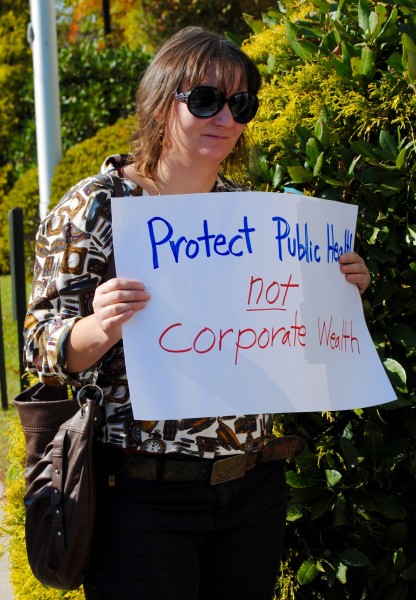
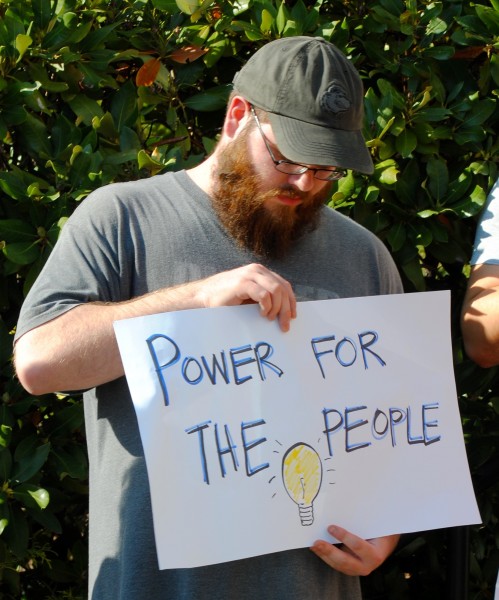

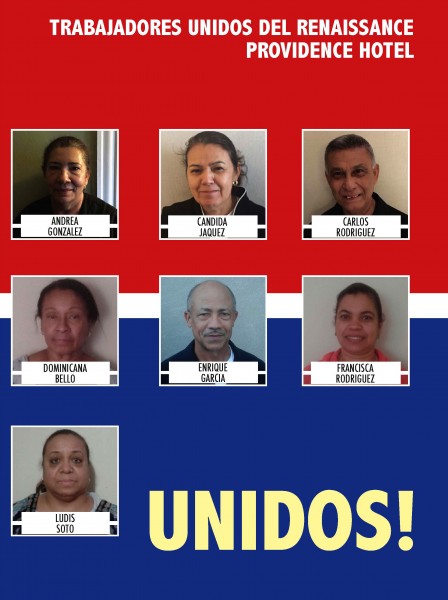 A strong majority of workers at the Providence Renaissance filed for a union election yesterday. The workers expect to win the election and proceed to negotiate a fair contract with the hotel owner The Procaccianti Group. The workers believe unionization will increase racial and gender equity in Providence.
A strong majority of workers at the Providence Renaissance filed for a union election yesterday. The workers expect to win the election and proceed to negotiate a fair contract with the hotel owner The Procaccianti Group. The workers believe unionization will increase racial and gender equity in Providence.